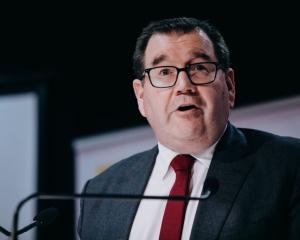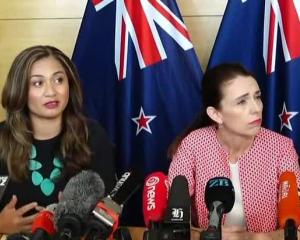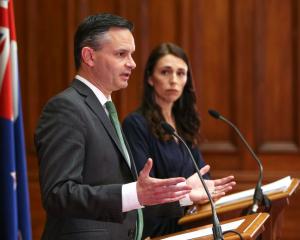
Pressure continues to mount on Labour leader Jacinda Ardern to reveal what she plans for her tax policies if elected on September 23.
New Zealand First leader Winston Peters set out a firm new condition of going into government with Labour - it must tell him what its tax plans are.
New Zealand First could not support any Labour government without knowing its true intentions, he told NZME.
Mr Peters said he believed Labour already knew what it wanted from a proposed tax working group but was instead saying it had not decided.

The New Zealand Property Investors Federation yesterday called for Labour to be open on the cost of its housing policies for rental property providers and their tenants.
BNZ chief economist Tony Alexander last week pointed to two Labour policies he believed would lead to higher rental prices.
``Labour's policy mix has capacity to help constrain the pace of house prices for lower-priced properties by boosting supply. But it will come at [a cost of] higher rents,'' he said.
Federation chief executive Andrew King said Labour had all but confirmed it would introduce a capital gains tax on all assets apart from the family home.
Mr Alexander said a capital gains tax meant rental property owners would hold on to their properties for longer.
``That means the policy will tend to place upward pressure on rents.''
Another tax change was ring-fencing rental property losses, adding $4084 a year to the cost of providing the average property as a rental home.
Mr Alexander said because negative gearing was usually only a short-lived situation for long-term investors - be they large-scale owners or small-scale ``mums and dads'' - it was possible the policy would lead to less rental accommodation being built and made available.
Mr King said Labour's extension to National's minimum standards law for rental properties would require many properties to have insulation top-ups costing thousands for a 5% increase in efficacy.
The same policy would make heat pumps a requirement for every rental property, regardless of whether they were the best source of heating or if that was what tenants wanted.
Labour had tried to offset the insulation and heating costs with a $2000 grant. However, it had not provided detail on how the grant would work.
Current insulation grants had tended to double the price, meaning they effectively provided no benefit at all, he said.
``When proposing its decision to apply debt to income restrictions, the Reserve Bank stated this would lead to a reduction of 9000 rental properties.
``Labour must have completed similar modelling to assess the effect on rental property supply and rental price increases and they need to be shared with voters.''
Families who were renting, and the parents of children who were flatting, deserved to hear from Labour how they were likely to be affected by Labour's promises, Mr King said.
Labour got some support from the Green Party after Mr Peters called for the show of tax.
Rather than a Labour spokesman stepping up in response, Greens leader James Shaw said Mr Peters needed to show how he planned to pay for his $10billion of recent election promises before he attacked Labour on its fully costed plan.
``Peters needs to be held to the same high standard Labour and the Greens have submitted themselves to by having his election priorities fully costed and independently scrutinised.''
The Green Party would release its independently analysed fiscal plan before the election, Mr Shaw said.
Comments
The question of taxes has been a hot topic for many years.
Trust funds, large multinationals and their small contribution , corruption, negative gearing, GST, etc
It is a good idea to have a group of people with knowledge to recommend the best way forward for NZ.
Russell












